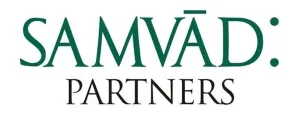In this client update, we have provided an overview of the recent developments in relation to the Sexual Harassment of Women at Workplace (Prevention, Prohibition and Redressal) Act, 2013 ("POSH Act"). Primarily, the Supreme Court ("SC"), in 2 (two) cases, has provided guidance on the good practices that a private establishment may adopt while formulating procedures to be followed by the statutory inquiry body, i.e., the Internal Complaints Committee ("IC"), and has also deliberated on the scope of the definition of an "aggrieved woman". Further, the Ministry of Corporate Affairs ("MCA") imposed a high penalty on a private establishment ("Entity") due to its failure to incorporate the statement on the constitution of the IC under the POSH Act in its board reports1 thus, highlighting the need for companies to diligently adhere to the provisions under the POSH Act and the Companies Act, 2013 ("Companies Act") to avoid any kind of financial or legal repercussions.
A recent judgement by the SC in the case of Union of India and Ors. v. Dilip Paul2, outlined the rigorous scrutiny that an IC needs to undertake in dealing with any complaints of sexual harassment. This extends to ensuring that the IC conducts thorough and impartial interviews with witnesses, examines relevant documents, and considers all available evidence.
This in turn, expands the scope and liability of an IC to ensure a thorough investigation is done. In the case of Binu Tamta and Anr. Petitioner(S) v. High Court of Delhi and Ors.3, the SC denied an application to expand the scope of an 'aggrieved woman', under the Gender Sensitization and Sexual Harassment of Women at the Supreme Court of India (Prevention, Prohibition and Redressal) Regulations, 2013 ("Regulations"), to also include LGBTQIA + communities. This may be useful to private establishments with gender neutral POSH policies, to understand the scope of statutory recourses that would be available to members of the LGBTQIA+ communities in their organisation.
In the case of Union of India and Ors. v. Dilip Paul, the SC noted that harassment in any form at the workplace humiliates and frustrates the victim especially when the harasser goes unpunished or is acquitted with a relatively minor penalty. Hence, it is imperative to view sexual harassment in any form, seriously. While the case was in relation to a government establishment, the SC emphasised on the fact that in disciplinary proceedings, the inquiry and disciplinary authorities serve as the fact-finding entities.
While citing precedents, the SC stated that the role of the court in disciplinary proceedings is limited to the review of the fairness of the inquiry and decision-making process. In disciplinary proceedings involving sexual harassment cases, if the accused is being provided with fair opportunity, the adjudicating authority has the discretion to accept any evidence with probative value4. The SC further emphasised on the importance of scrutinizing evidence and that the IC, being an inquiry authority and having the powers of a civil court, must be allowed to put across its own questions to witnesses as well, and not serve as an authority that only records statements. This is essential if a proper, fair, and thorough inquiry is to take place. This serves as a directive to ICs in private establishments as well, as this notes the power of an IC, to be a through investigative body, and entrusts the duty of cross-examining witnesses on an IC, for a fair enquiry to be done. The SC also appears to have limited the role of the appellate court under the POSH Act, to a review of the "fairness of the inquiry and decision-making process" and therefore, it appears unlikely that the appellate court under the POSH Act would substitute its judgment and findings against the findings rendered by the IC.
On November 7, 2023, the SC in the case of Binu Tamta and Anr. Petitioner(S) v. High Court of Delhi and Ors. denied an application to widen the scope of the Regulations to include members of the LGBTQIA+ communities within the definition of 'aggrieved woman', who may raise complaints of sexual harassment. It must be noted that the Regulations deal with POSH complaints in the SC and therefore, would not be applicable to private establishments. Further, while the POSH Act has a wider ambit of the definition of an "aggrieved woman", the rationale of the SC can be seen as a guiding principle when interpreting the larger issue of whether members of the LGBTQIA+ community, who may identify as female, while not being female by birth, may seek statutory recourses under the POSH Act.
While many private establishments have formulated gender neutral POSH policies, that also allows men to raise complaints of sexual harassment within such establishments, the statutory right to file a POSH complaint under the POSH Act only vests with an 'aggrieved woman'. Considering the SC's judgement, as regards private establishments that do have a gender-neutral policy or extend the POSH policy of their establishment to members of the LGBTQIA+ communities, statutory recourses under the POSH Act may not be available, to those that do not strictly fall within the definition of an "aggrieved woman" as per the provisions of the POSH Act. However, such gender-neutral policies cannot be termed illegal or unlawful and therefore, even if it is held that enquiry proceedings under such policies would fall outside the scope of the POSH Act, the violation of such policies (which would form part of the workplace policy to be complied with by all personnel) will lead to disciplinary proceedings by the workplace under the provisions of the Policy and the Service Rules applicable to the violator. Enquiry into such violation can be made under the provisions of the Policy or Service Rules and requisite action thereunder can be taken against the personnel.
Separately, in a recent order of adjudication of penalty5, the MCA imposed a cumulative penalty of INR 9,00,000 (Indian Rupees Nine Lakhs) arising from the Entity's omission to include a necessary disclosure on the constitution of the IC under the POSH Act in its board reports as mandated under Rule 8(5)(x) of the Companies (Accounts) Rules, 20146. This also included imposing a financial penalty of INR 50,000 (Indian Rupees Fifty Thousand) on the managing director, chief financial officer, and the company secretary. The Entity contended that the omission was unintentional, and that constitution of an IC was not obligatory considering each of its establishments had less than 10 (ten) employees. The Entity further stated that it had not received any complaints from women workers. Such assertions did not exempt the Entity from its liability for failure to constitute an IC and disclose the same under the relevant provisions of the POSH Act and Companies Act, respectively. The MCA's order not only reiterates the legal requirement for a company to disclose its compliance with the POSH Act in the board report but also stresses on the need for companies to comply with statutory requirements in order to avoid financial liabilities and potential legal disputes.
Footnotes
1. Rule 8(5)(x) of the Companies (Accounts) Rules, 2014 mandates the inclusion of a statement in the board of directors' report that the company has complied with provisions relating to the constitution of IC under the POSH Act.
2. Civil Appeal No 6190 of 2023.
3. Miscellaneous Application No. 2308/2023
4. In common parlance 'probative value' refers to the sufficiency, probability, value, and extent of evidence considered by the court to prove something in a trial.
5. Order of adjudication of penalty under Section 454 of Companies Act, 2013 read with Rule 3 of the Companies (Adjudication of Penalties) Rules, 2014 for violation of Section 134(3) of the Companies Act, 2013; F. No. ROC(B)/Adj.Order/454-134(3)/CEETA /Co.No.21494/2023 Date:12.09.2023, available at- https://www.mca.gov.in/bin/dms/getdocument?mds=J4udAZEP%252FVcV74EQ2RlSTQ%253D%253D&type=open
6. https://static.pib.gov.in/WriteReadData/userfiles/Notification%20Uner%20Companies%20Act.pdf
The content of this article is intended to provide a general guide to the subject matter. Specialist advice should be sought about your specific circumstances.



